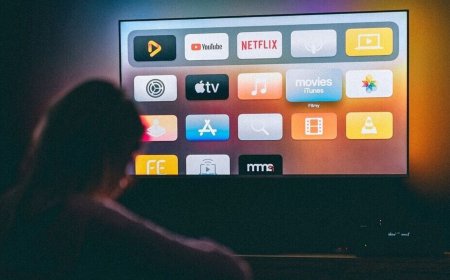Tuning Out: RJs Abandon Radio to Become Influencers as Their Social Media Popularity Soars
Top Indian radio jockeys are quitting FM radio to build careers as influencers. Learn why RJs are tuning out and how social media is reshaping the entertainment landscape.

In a striking shift within India’s media landscape, a growing number of radio jockeys (RJs)—once the vibrant voices behind the mic—are hanging up their headphones and taking to social media platforms, capitalizing on their ever-growing follower base and the lucrative world of digital content creation.
The transition signals a fundamental evolution in how content is created, consumed, and monetized, as RJs turn from studio-bound broadcasters to digital influencers commanding millions of followers across Instagram, YouTube, and Spotify.
From Airwaves to Algorithms
RJs, who traditionally entertained through tightly curated playlists and scripted talk segments, are now embracing the freedom and creative control offered by platforms like Instagram Reels, YouTube Shorts, and podcasts.
RJ Karishma, a popular name from Red FM Mumbai, has amassed over 2 million Instagram followers thanks to her humorous skits and slice-of-life content. “Radio gave me a voice, but social media gave me a face,” she said in a recent post celebrating her departure from FM radio after nearly a decade.
Karishma’s story is becoming more common. Others like RJ Naved, RJ Malishka, and RJ Raunac have built independent digital identities that far eclipse their radio personas in reach and earnings.
The Decline of Traditional Radio
Once a staple of Indian commutes and households, FM radio is slowly losing its sheen. According to a FICCI-EY 2024 media and entertainment report, FM radio’s share in the Indian audio content space has dropped from 35% in 2018 to just 18% in 2024. Meanwhile, podcast and digital audio consumption has surged by 24% year-on-year, fueled by Gen Z and millennial audiences migrating to mobile-first platforms.
“The problem isn’t content quality—RJs are still incredibly talented,” said Nandita Roy, Media Analyst at Amura Insights. “The issue is distribution. FM radio hasn’t evolved fast enough to keep up with on-demand preferences and algorithm-driven visibility.”
Social Media: The New Studio
Platforms like Instagram and YouTube have provided RJs with creative autonomy and direct audience feedback. Unlike radio, which often confines content to short bursts and preset formats, digital media lets creators experiment with video, collaborations, live interactions, and brand tie-ups.
For example, RJ Abhinav, who gained fame through prank calls on air, now earns through YouTube ads, brand endorsements, and event appearances, reportedly raking in three times his previous radio salary.
“The virality potential on social media is unmatched,” said Pratik Shah, a digital marketing strategist. “An RJ's funny skit or motivational reel can reach 10 million people overnight—radio simply can't offer that kind of scalability.”
Monetization Opportunities Multiply
The monetization model has dramatically expanded beyond the fixed pay scales of FM stations. Influencers can now tap into:
-
Sponsored content: Collaborations with brands across fashion, tech, and wellness
-
Ad revenue: From YouTube and Facebook
-
Merchandising: Personalized merchandise lines
-
Live events: Stand-up shows, hosting gigs, and workshops
-
Podcast syndication: Deals with platforms like Spotify, Gaana, and Audible
According to RedSeer Consulting, India’s influencer economy is expected to touch ₹2,800 crore by 2026, with micro and mid-tier creators (10K–1M followers) contributing a significant chunk. RJs, who already have built-in audiences and communication skills, are in prime position to capitalize.
FM Stations Struggle to Adapt
Radio stations are feeling the heat. Some are trying to adapt by launching digital arms and podcast channels, but with mixed success. Legacy FM channels like Radio Mirchi and Red FM have initiated podcast verticals, but content visibility remains limited due to competition from independent creators and OTT platforms.
“There’s a digital identity crisis in legacy radio,” said Tanvi Mehra, a former programming head at a leading FM channel. “You have fantastic talent, but they’re bound by corporate red tape, whereas platforms like Instagram allow instant storytelling with authenticity.”
Investor Outlook: Betting on the Creator Economy
While public radio companies face stagnation, investors are flocking toward platforms that enable content creators. Influencer marketing agencies, creator management platforms, and audio OTT services have all seen capital inflow.
Karan Khanna, Senior VP at GreyOak Ventures, says: “We’re seeing a lot of investor interest in startups that manage creator pipelines or build monetization tools. Former RJs are goldmines—they already know how to tell a story, engage emotionally, and keep audiences hooked.”
Companies like One Impression, The Good Creator Co., and Qoruz are increasingly signing former RJs to build robust influencer rosters, helping them transition into full-time content entrepreneurs.
The Future of Radio Jockeying
Does this mark the end of radio as a career? Not entirely. FM radio still thrives in Tier-2 and Tier-3 cities where data penetration is lower, and there remains a loyal audience segment among older generations.
However, the aspirational path is clear. Young RJs are entering the field not to stay in it long-term, but to use it as a stepping stone into the influencer ecosystem.
“The mic is no longer the final destination,” said RJ Simran, who left her Delhi-based show to start a mental health podcast. “It’s just the beginning of a louder, freer voice on a bigger stage.”
The exodus of RJs into the influencer domain reflects more than a career shift—it’s a cultural transformation. As radio grapples with digital disruption, its most compelling voices are finding their true resonance online, reshaping the entertainment industry along the way.
What's Your Reaction?
 Like
0
Like
0
 Dislike
0
Dislike
0
 Love
0
Love
0
 Funny
0
Funny
0
 Angry
0
Angry
0
 Sad
0
Sad
0
 Wow
0
Wow
0













































































